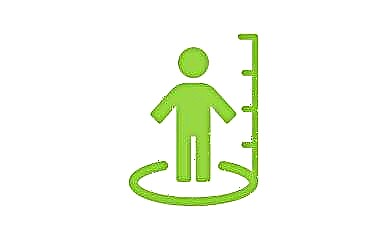
Among the mucolytic drugs prescribed for coughing, the ACC drug produced by Sandoz is in great demand. Can it be used in the treatment of children and from what age is it permissible to give ACC to babies? Which dosage form is best for children? How to dilute a tablet or granules? These and other questions about the use of such a medicine worry every mother if the doctor prescribed this drug to her coughing child.

Release form
The ACC drug is presented in the following forms:
- Effervescent tablets. They are flat, round, blackberry scented and white in color, and each dissolving tablet contains 100 mg or 200 mg of active ingredient. Also produced are tablets with 600 mg of active compound called ACC Long. One tube contains 10-20 tablets.
- Syrup. The packaging of such an ACC is represented by a glass bottle filled with 100 ml of a transparent viscous liquid without color with a cherry aroma. 1 ml of syrup contains 20 mg of the active ingredient.
- Granule bags. The weight of one sachet is 3 grams, and one pack includes 20 sachets with a white homogeneous granular powder inside. The drink made from it can taste like orange or lemon with honey. The content of the active ingredient in the packet is 100 mg or 200 mg.
- Solution. This medicine, called ACC injection, is a clear liquid without any color, poured into 3 ml ampoules. One ampoule contains 300 mg of active ingredient. One package contains 5 ampoules.
Composition
The main ingredient of any form of ACC, which provides the drug with a therapeutic effect, is acetylcysteine. Excipients differ in different types of medicine:
- Effervescent tablets contain citric and ascorbic acid, bicarbonate, saccharinate, citrate and sodium carbonate. Also in this form, milk sugar and mannitol are present, and a blackberry flavor gives a pleasant smell to the tablet and the solution prepared from it.
- Sucrose and ascorbic acid act as auxiliary ingredients of the ACC powder form. Also, such a medicine contains saccharin, and the presence of a flavoring makes the drink made from granules orange or lemon-honey.
- Additional substances in the syrup are represented by water, methyl parahydroxy benzoate, disodium edetate, as well as hydroxide, carmellose, sodium benzoate and saccharinate. The scent of this medicine is given by a cherry flavor.
- In addition to the active ingredient, the ACC inject solution contains sterile water and edetate disodium. Also, this liquid form contains ascorbic acid and sodium hydroxide.


Operating principle
After entering the human body, acetylcysteine begins to directly affect the phlegm that forms in the respiratory tract. In particular, this compound changes the rheology of mucus due to the destruction of bonds in mucopolysaccharides, which are found in bronchial secretions. This makes the phlegm thinner and lowers its viscosity. The effectiveness of the product does not decrease, even if pus is mixed into the mucus.
Acetylcysteine also has some antioxidant activity. It is noted that this substance stimulates the synthesis of glutathione, and is also capable of neutralizing the radicals formed during oxidative processes. This action of ACC strengthens the protection of the cells of the mucous membrane of the respiratory tract, and also helps to reduce the inflammatory process.

Indications
The reason for using ACC is any disease of the respiratory system, in which too viscous secretion has accumulated inside the bronchial tree.
The drug is prescribed for:
- Laryngitis.
- Bronchitis.
- Pneumonia.
- Laryngotracheitis.
- Chronic pulmonary pathologies, including obstructive diseases.
- Bronchiolitis.
- Bronchiectasis.
- Development of an abscess in the lung.
ENT doctors prescribe such a medication for otitis media, rhinitis or sinusitis. Helps ACC and cystic fibrosis.

At what age can you give?
The instructions for use allow the appointment of ACC for children who are 2 years old. For young patients aged two to 5 years, a medicine called ACC 100 is intended, since the dosage of the active substance in it is the lowest. The drugs ACTS 200 and ACTS inject are prescribed for children six years of age and older. A drug with a maximum dosage of acetylcysteine (ACC Long) is recommended from the age of 14.

Contraindications
Annotation to ACC drugs prohibits their use in such cases:
- If the child has an intolerance to some component of the drug, for example, acetylcysteine or lactose, which is in the composition of the tablets.
- If the lung disease is complicated by bleeding and traces of blood are found in the sputum.
- If the patient has a peptic ulcer.
- If the child suffers from a lack of certain enzymes (lactase, sucrase) or impaired carbohydrate metabolism.

Without consulting a doctor, ACC should not be given to children with bronchial asthma, arterial hypertension, kidney disease, liver pathologies, adrenal gland disorders, diabetes mellitus. In such diseases, the pediatrician first evaluates the indications, and then selects the desired form of ACC and the correct dosage of the drug.
Side effects
Like many other medicines, ACC can cause allergies. From taking such a medication, urticaria, skin swelling, itching, rashes and even anaphylactic shock may appear.
Other side effects of ACC are:
- Shortness of breath or the appearance of bronchospasm. Such a reaction of the child's body to acetylcysteine is often found in bronchial asthma. If a child's cough worsens after taking ACC, you should immediately consult a doctor.
- Heartburn, loose stools, stomach discomfort, and other symptoms called dyspepsia.
- Fever, headache, ear noises, bleeding. Such negative effects of ACC treatment are very rare.

Instructions for use
How to use
- The use of ACC is recommended after meals.
- An effervescent tablet in the required dose should be dipped into a glass of water, wait for dissolution, and then offer the medicine to the child. For dissolution, use only water and glassware.
- The contents of portioned sachets of ACC are dissolved in half a glass of liquid. At the same time, the granules can be diluted with water and another drink, for example, juice or cooled tea.
- It is undesirable to leave a suspension prepared from a tablet or ACC powder for a long time. If it is not possible to drink the medicinal solution immediately, storage at room temperature for no longer than two hours is permissible.
- For the dosage of the syrup, it is advised to use a measuring glass or a syringe, which is placed in the medicine package.
- The last intake of ACC should not be later than 18 hours, since later application can adversely affect sleep.
- In order for the therapeutic effect of the drug to occur faster, it is recommended to consume a large amount of additional liquid.
- How many days to take the medicine, the doctor decides for each child individually. In acute illness, the duration of use is most often 5-7 days.
- ACC injections are done in a hospital 1-2 times a day. The drug is injected either deep into the muscle or slowly into a vein (within 5 minutes), mixing the contents of the ampoule with saline or glucose in a 1 to 1 ratio.

Dosage
The daily dose of ACC, regardless of the form of release for a child of different ages, will be as follows:
This dose is divided into 2 doses for children under 14 years of age, and for a child over 14 years of age, the drug can be given either once a day or divided into 2-3 doses.

A single dose of different forms of ACC for a child over 2 years of age to 6 years of age is usually 100 mg of acetylcysteine.
A child of this age is prescribed one of these drugs:

A single dosage for children over 6 years of age to 14 years of age will be 150-200 mg of acetylcysteine. Often, the drug is prescribed in a dosage of 200 mg per dose.
Depending on the form of ACC, this will be the following amount of medicine:

At the age of 14 and older, the daily dose of ACC may be:

A single dosage of the injectable form of ACC is half an ampoule for children 6-14 years old and a whole ampoule for a child over 14 years old. In the presence of vital indications, the drug can also be administered to children under 6 years of age at a dosage of 10 mg of active substance per 1 kg of the baby's weight.
ATSTS solution in ampoules can also be used for inhalation in a nebulizer. For one procedure, take 3 ml of medication and mix with 3 ml of saline. Such manipulation is allowed for coughing in children over 12 years old.
Overdose
Taking too much ACC leads to vomiting, severe nausea, or loose stools. To help with an overdose, the doctor prescribes symptomatic treatment.
Interaction with other drugs
- Mixing ACC and any other drugs in one glass is not recommended.
- The use of sorbents, such as activated carbon, will reduce the effectiveness of acetylcysteine treatment.
- It is categorically impossible to give children ACC and drugs that suppress the cough reflex. This combination of medicines can cause mucus to stagnate in the airways.
- If you combine ACC and medicines from the bronchodilator group, then the treatment of cough will be more effective.
- Acetylcysteine can worsen the effect of antibiotic therapy if cephalosporins or penicillin drugs are used, and therefore a break of 2 hours or more should be taken between such drugs.
- The simultaneous administration of ACC and vasodilating drugs leads to greater vasodilation.

Terms of sale
To buy any form of ACC, except for injection, you do not need to present a prescription. To purchase an ACC injection, you need a doctor's prescription.
On average, the cost of a pack of 20 ACC 100 tablets or one bottle of syrup is about 240 rubles. The price of ACC in sachets is about 120-130 rubles per package. For ten tablets of ACC Long, you need to pay about 300 rubles.

Storage conditions and shelf life
Keep ampoules, granules or tablets in a dry place with no access for a small child. The storage temperature should not exceed 25 degrees Celsius. When removing the tablet from the tube, the package must be tightly closed immediately.
The shelf life of the drug, depending on the form, is:
- For tablets - 3 years.
- For bags with granules - 4 years.
- For syrup - 2 years (not opened).
- For ampoules with solution - 3 years.
When the bottle of ACC syrup is opened, the medicine should be stored for no longer than 18 days.


Reviews
There are mostly positive reviews about the use of ACC for wet cough in children. Mothers confirm that the drug very effectively liquefies a very viscous secret and helps to cough up, thereby accelerating recovery. Side effects from ACC are rarely noted, and most children find the taste of the finished medicine pleasant.

Analogs
Any analogue, which also contains acetylcysteine, is capable of replacing ACC. This drug can be Fluimucil, H-AC-Ratiopharm, Acetylcysteine or Acestin. With a cold, you can use the drug Rinofluimucil, which also includes acetylcysteine. The medicine is released in the form of a spray, which is convenient for injecting the medicine into the nose.


Also, instead of ACC, the doctor may recommend a remedy with a similar effect, which will no less effectively help in the treatment of cough, for example:
- Lazolvan. The active substance of such an expectorant is ambroxol. The advantages of Lazolvan are a wide variety of dosage forms and the possibility of using it from birth.
- Erespal. The basis of this drug is fenspiride, which has an antihistamine effect. Taking Erespal relieves bronchospasm and helps in the fight against inflammation, therefore such a medicine is in demand for dry and barking coughs. It is prescribed in syrup from the age of two, and in tablets - not earlier than 18 years.
- Fluditek. This mucolytic contains carbocisteine and comes in a two-dose syrup. The smaller one (20mg / ml) allows the use of the medicine from the age of 2, and the larger (50mg / ml) is allowed from the age of 15.
- Gedelix. This plant-based remedy has an expectorant effect. The drug is made from ivy leaves in syrup and drops. It can be given to children who are 2 years old.
- Mukaltin. This expectorant medicine in tablets is prescribed for children over a year old.
- Ascoril. This multicomponent preparation contains salbutamol and bromhexine, which are supplemented with guaifenesin. Its reception dilutes the secretion of the bronchi and has an expectorant effect. This medicine in syrup is prescribed for children from 1 year old, and the tablet form - from six years old.



